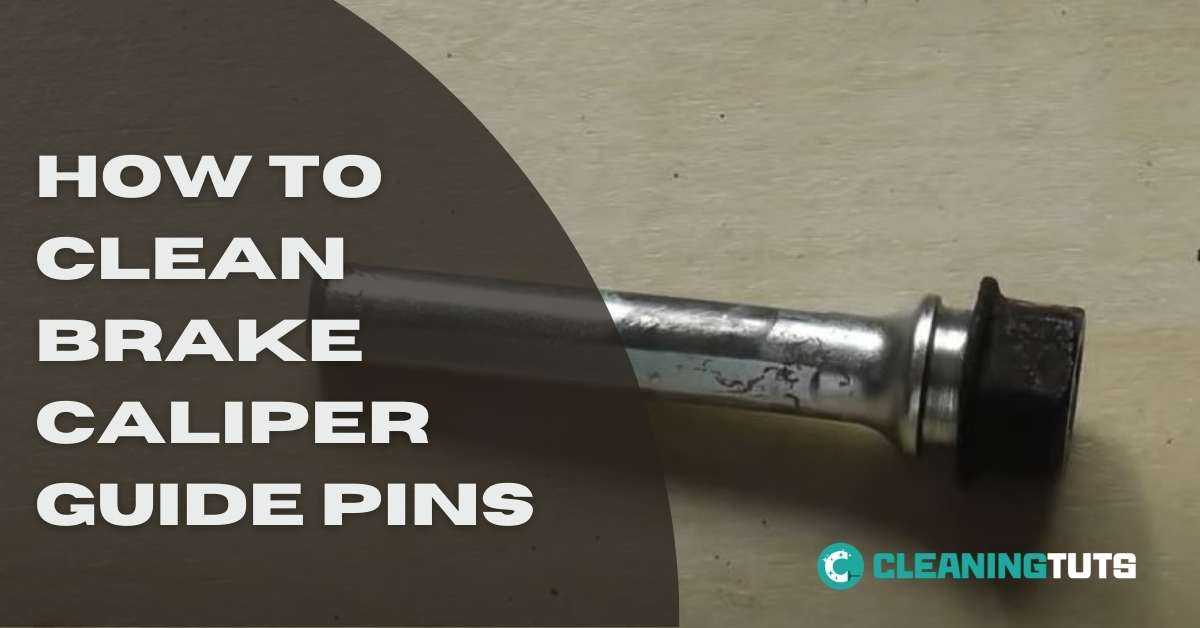How to Clean Brake Caliper Guide Pins?
What a lot of people don’t realize that brake caliper guide pins are there for is to make your brake system operate smoothly and efficiently without any friction. But, sometimes, this part can get dirty because of the way it is used.
Fortunately, cleaning brake caliper guide pins is relatively simple with a few household tools. You need a piece of steel wool or fine-grained sandpaper to rub them, then lubricate them using special grease.
Want to know more? Well, read this article. Here, we’ll show you thoroughly how to clean brake caliper guide pins to work like new in no time!
How to Clean Brake Caliper Guide Pins?
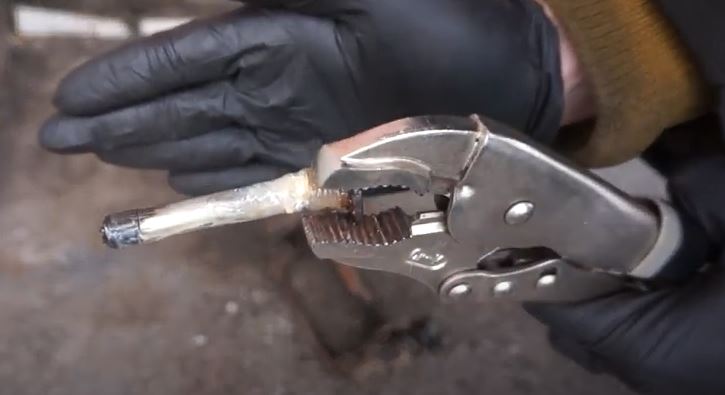
Over time, brake caliper guide pins can become gummed up with road grime and brake dust. As a result, the caliper may not slide smoothly, leading to braking problems.
Fortunately, it is very easy to clean the guide pins and keep your brakes in top condition. Before starting the cleaning procedure, the brake caliper needs to be entirely opened. To open a brake caliper, start with removing the wheel and tire.
Next, use a wrench or socket to loosen the caliper pins. Once the pins are loose, carefully slide the caliper off the rotor. Be careful not to damage the brake line or other components. Finally, remove the old brake pads from the caliper. Now let’s get into the cleaning process:
Wipe Away the Dust Particles
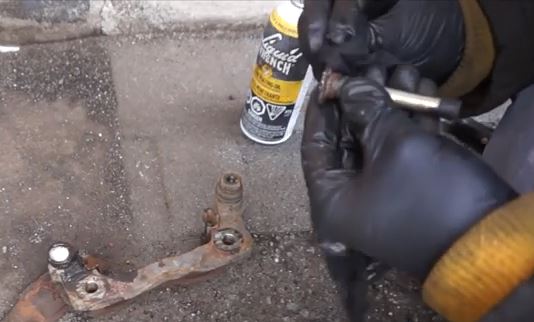
Use a rough rag or a ball of steel wool to wipe away any dust or debris on the guide pins. Then, soak the guide pins in a pan of brake cleaner for a few minutes.
Clean the Remaining Residue
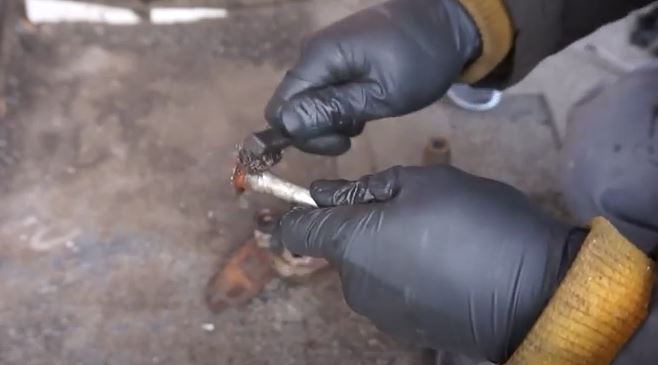
After a few minutes have passed, use a brush to remove any remaining build-up on the guide pins. Brush in a circular motion to ensure that all build-up is removed. With a clean brush, wipe away any debris.
Dry and Reconcile
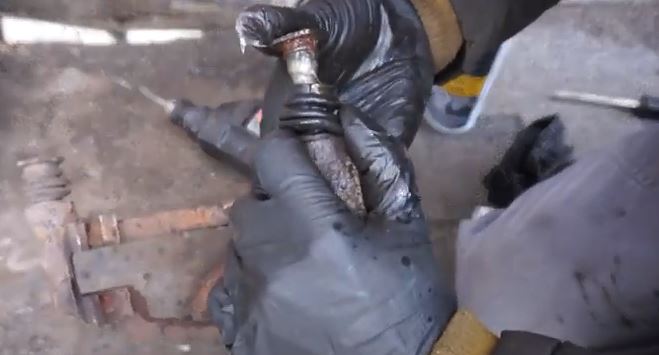
Dry the guide pins with a clean rag and reassemble the brake caliper. Repeat this process to keep your brake calipers clean and in good working condition.
By following these simple steps, you can ensure that your brake calipers operate at peak performance.
How Do You Clean Guide Pin Holes?
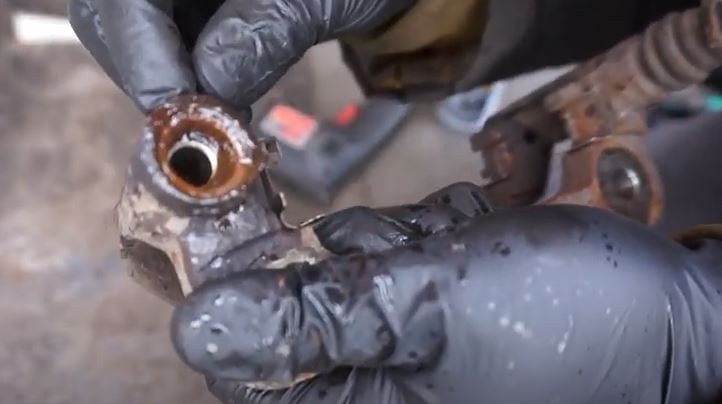
Brake caliper guide pinholes are an area of the vehicle that often gets overlooked. They need regular cleaning and maintenance to keep the brake caliper running smoothly. So, now we are going to show you how to clean them.
By Using Sandpaper
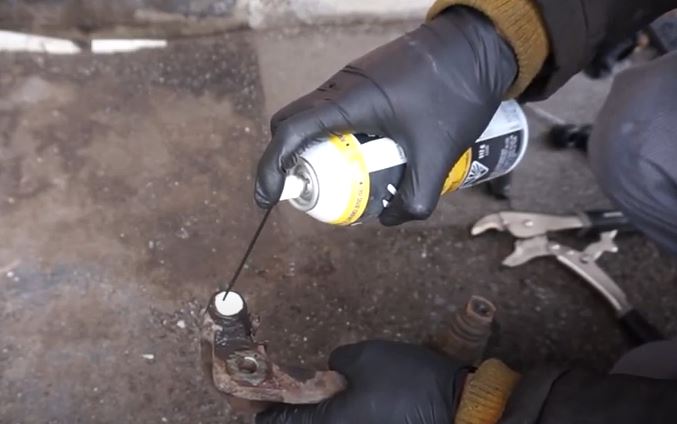
You’ll need some sandpaper, a small wire brush, and a can of brake cleaner. Begin by removing any rust or dirt from the surface of the caliper pinholes with sandpaper.
Then, use the small wire brush inside the holes to remove any remaining debris. Finally, spray the brake cleaner into the holes and allow it to dry completely.
It will remove any residual dirt or slime and help keep your brakes functioning properly.
By Applying Compressed Air
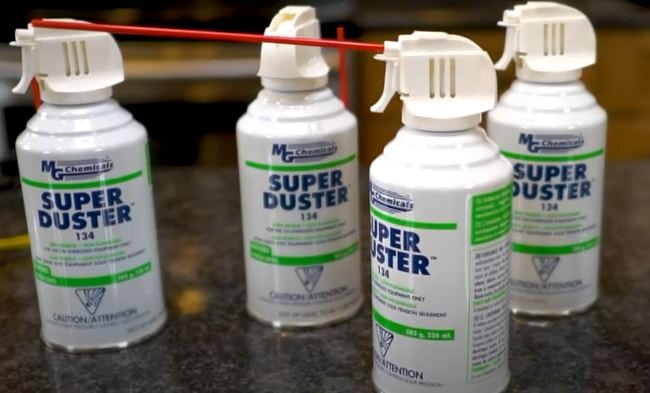
You will need a wire brush and some compressed air. First, use the wire brush to remove any dirt or debris clinging to the outside of the pinholes.
Next, insert the nozzle of the compressed air into the pinholes and blast away any remaining debris.
Be sure to hold the can of compressed air upright so that dirt and debris are not blown back into the holes. Once the hole is clear, you can reassemble your brake caliper and enjoy smooth, quiet braking.
Should Caliper Pins Be Lubricated?
Caliper pins help keep your brakes working properly by providing a smooth surface for the caliper to glide on as it presses the brake pads against the rotor. Over time, however, the pins can become corroded or gummed up with grime and residue, which can cause the caliper to stick or bind.
That’s why it’s important to lubricate your caliper pins regularly by using high-temperature and synthetic waterproof lube or grease specifically made for the brake caliper.
Doing so will help keep your brakes in good working order, but it will also help extend the life of your calipers. Most experts recommend lubricating the pins every 12-15 thousand miles or once a year.
If you live in an area with many road salts or other corrosive materials, you may need to lubricate more frequently. Either way, it’s a simple task that will pay dividends in safety and performance.
How Do You Lubricate A Brake Caliper Guide Pin?
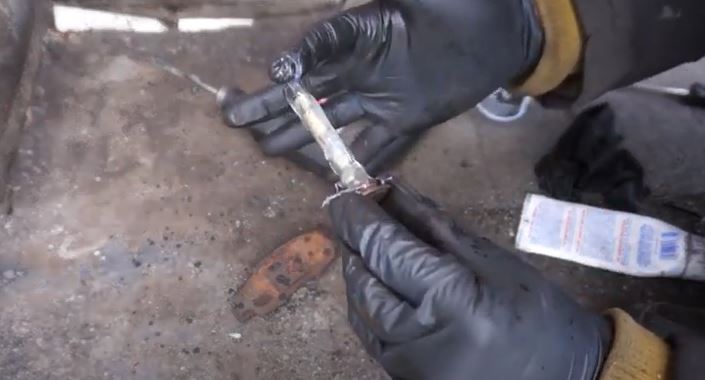
When it comes to maintaining your brakes, it is important to keep all components clean and properly lubricated. It includes the guide pins located at the top and bottom of the caliper. Let’s see how easily you can lubricate the caliper guide pin.
Make Loose, Then Remove the Guide Pins
To lubricate the guide pins, you must first loosen them up. It can be done by gently tapping them with a hammer or using a pair of needle-nose pliers/wrenches to pull the pin out from the backside of the caliper.
If the pin is stuck, spray it with some penetrant oil and let it sit for a few minutes before trying again. Once they are loose, remove them completely.
Examine the Pins Carefully
You should inspect the pins closely to make sure they are not damaged and are not too dirty. Excessively dirty pins can cause problems.
Clean the Pins
If dirt or other residue has been building up on them, use a wire brush to clean the threads and then wipe them down with a paper towel to remove any remaining grease.
Tip: If you are cleaning the caliper guide pins, it is a good idea to clean the guide pin hole as well. This can be done with a few simple household items.
Lubricate the Guide Pins
Apply a lubricant for brake calipers to the pins. So that it will help reduce friction and prevent sticking. Apply the lubricant on them carefully, like putting toothpaste on a toothbrush.
By following these steps, you can help extend the life of your brakes and ensure that they continue to operate effectively.
What Kind of Grease Do You Use on Brake Caliper Pins?
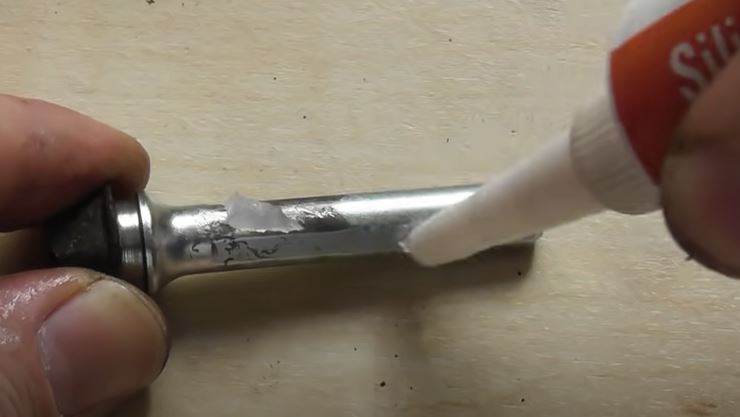
When it comes to brake caliper pins, it’s important to use the right type of grease. That’s because different types of grease have different temperature thresholds. Below we have covered different types of grease that you can use to lubricate your brake caliper pins:
Silicone-Based and PFPE Type
You always want to use a high-temperature grease, such as a PFPE-type or silicone-based brake caliper grease. These types of grease can withstand higher temperatures (between -40 and 392 degrees Fahrenheit) without breaking down.
Polyglycol Kind
Polyglycol lubricant also works well on brake calipers pin. It can be used in a wide range of temperatures, from -40 degrees Fahrenheit to 257 degrees Fahrenheit.
Always remember, never use any low-temperature grease or petroleum-based grease. Those can break down at high temperatures and cause problems. Therefore, if you’re looking for a grease good for brakes, search for a high-temperature grease designed specifically for brake calipers.
Conclusion
Regular maintenance of your brake caliper guide pins is crucial to the safety and performance of your vehicle. While it may seem straightforward, there are a few things to keep in mind to ensure the job is done correctly. And while you are at it, why not clean the wheels as well? It’s best to start with the small caps. Then, you will find it easy to follow the steps of cleaning wheel center caps from our experts.
Anyhow be sure to clean the guide pins entirely before lubricating them. It will help remove any buildup of dirt that could cause problems down the road. And when lubricating the guide pins, use a high-quality synthetic grease designed for brake applications.
By following the above steps, you can ensure that your brake system functions properly and safe your vehicle. Hence, the next time you take your car in for service, ask the mechanic to check your brake calipers and guide pins!

